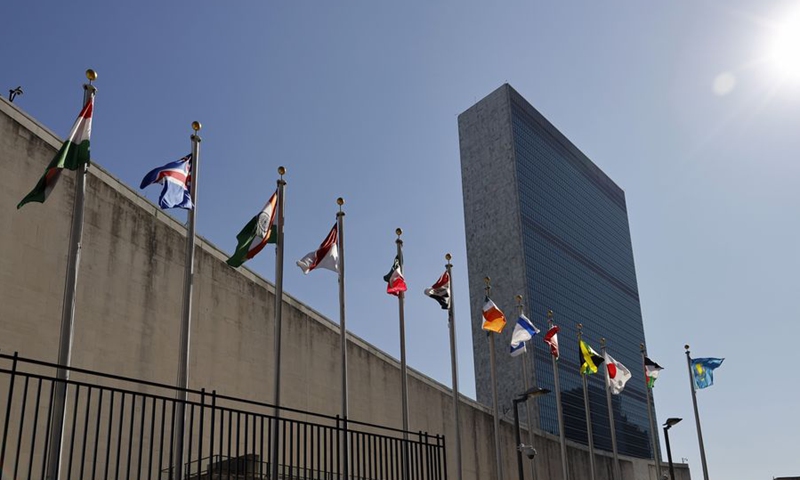Virtual UN General Assembly opens in pandemic; situation calls for commitment to multilateralism

File photo of the United Nations headquarters in New York
The 75th session of the United Nations (UN) General Assembly opened on Tuesday (local time), which was held via videoconference for the first in history due to the pandemic. Experts said the pandemic emphasizes the importance of upholding multilateralism, urging the US to abandon "the most extreme unilateralism in history," recognize the fact that the international community is interdependent, and engage in wide-ranging cooperation.
Chinese President Xi Jinping will attend high-level meetings to commemorate the 75th anniversary of the United Nations via videoconference and deliver important remarks, Foreign Ministry spokesperson Hua Chunying said on Tuesday.
Volkan Bozkir, the president-elect of the 75th session of the UN General Assembly, said previously that the pandemic coinciding with the 75th anniversary of the UN serves as a stark reminder of the importance of effective multilateralism and, in particular, the crucial role of the UN and its agencies.
Many observers and outlets around the world believe that the global damage of COVID-19 could have been greatly reduced via coordinated efforts of international organizations, of which the US should take a leading role as the world's sole superpower. But the US flunked the test of its leadership and responsibility by withdrawing from the World Heath Organization and hindering the operations of the World Trade Organization, and spared no effort attacking and smearing China with its Cold War mentality.
Just last week, the UN General Assembly passed a sweeping resolution calling for "intensified international cooperation" to contain the pandemic, but the US and Israel were the only two countries to vote against it.
In comparison, the Chinese Foreign Ministry on Thursday said China will provide more public health products to the world. State Councilor and Chinese Foreign Minister Wang Yi also stressed vaccine and public health cooperation during his recent visit to Europe and at meetings with ASEAN members.
During the Cold War in the 1960s, when ideological confrontation was worse than today, the US CDC and Soviet Union's counterpart worked together to develop and distribute the smallpox vaccine to developing countries.
Analysts noted there is no reason for the Trump administration to reject multilateral cooperation with China and WHO under the UN framework. But Trump appears determined on an anti-China and unilateral path until the end.
Richard Horton, the editor-in-chief of The Lancet medical journal, slammed Trump's decision to cut funding to the WHO as a "crime against humanity" and a "damnable" act that will cost lives.
Multilateralism is an indispensable framework for international cooperation, and the mainstream of world cooperation will not be reversed, said Zhang Shengjun, an international politics professor at Beijing Normal University, emphasizing that narrow nationalism is a not a sustainable solution.
China has shared information, medical guidelines and supplies with the world since the outbreak was detected. Many people believe if the US had been willing to work with China and the WHO, the pandemic could have been contained.
As long as one country has the epidemic, other countries will be at risk. This is why multilateral cooperation is so important and why China has always been committed to it, Zhang said, noting the US' poor anti-epidemic performance proves it cannot stand on its own two feet and pretend nothing happened.
The principle of "America First" is an important reason for US stubbornness on unilateralism. If the US continues to refuse to cooperate, choose confrontation with China, and refuse to accept everything from China, including China's scientific epidemic prevention plan, the epidemic will continue to spread, and people around the world will suffer along with it, setting back the world economy for many years, Zhang said.
The US so far has 6.5 million infections, as the total number of reported infections in the world has hit 29 million. It is not yet the time to estimate economic losses from the pandemic.


